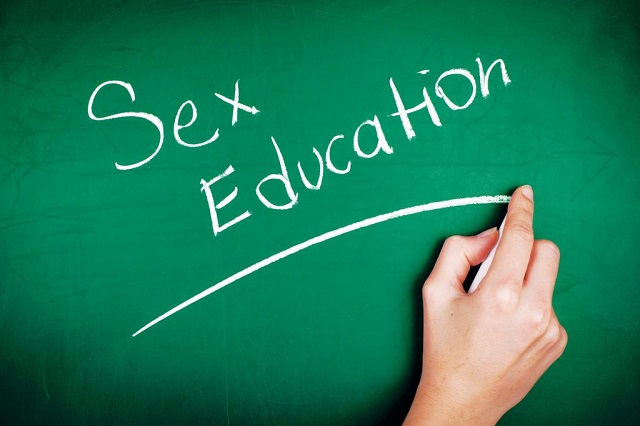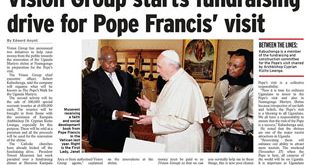
The EAC Sexual and Reproductive Health Bill should be an opportunity for clerics and human rights advocates to collaborate
COMMENT | YVONNE MPAMBARA | The East Africa Community Sexual and Reproductive Health Bill 2021 has been at the center of recent discourse in the media and in different technical spheres on health, gender, human rights, and law.
Among others, the Bill requires every EAC Member State to provide adequate, accessible, and – where they are not free – affordable, sexual, and reproductive health services to facilitate the realisation of the highest attainable standard of health by every person.
Article 127 of the treaty further mandates State parties provide an enabling environment for the private sector and civil society to take full advantage of the community.
As is the requirement for the good governance of a free and democratic state, the enactment of laws and other regulatory frameworks should be participatory. The Process of legislation in the East African Legislative Assembly (EALA) is provided for in its Rules of Procedure.
The Procedure (Rules) stipulates that a member of the assembly may introduce a motion to introduce a Bill, following a grant of leave to do so. A Bill having been read a first time shall stand committed to the relevant committee without question.
The Committee to which the Bill is committed shall present its report to the House within ninety days and thereafter, the Bill shall be read for the second time.
The report that is presented at the second reading is informed by feedback from key stakeholders collected by way of convening public hearings and submission of memoranda on the contents of the proposed law. The most recent hearing was a public hearing convened at Common Wealth Resort Munyonyo in Kampala on the June 29, 2022.
The session was chaired by the Chairperson of the General Purposes Committee, Hon. Denis Namara. The participants included policymakers, civil society organisations, grassroots organisers, media, legislators, and religious groups (mainstream and otherwise).
It is therefore shocking that following this public hearing, there is a group of religious people who convened a public hearing at Hotel Triangle on the August 8, 2022. This hearing was to the exclusion of any other stakeholder who they believed was opposed to their stance on the Bill. They have taken the misguided view that the Bill is a Trojan horse for all issues un-African and culturally unacceptable.
In fact, to them, it matters not what the content of the Bill is, and what the prevailing state of health and wellbeing of the people of East Africa in the sphere of reproductive health is. The Bill must be thrown out. Talk about throwing out the baby with the bath water.
This Bill should at the least have created an opportunity for religious groups to sit at the same table with other stakeholders, especially civil society organisations to address the failing state of sexual reproductive health in the region.
Each year, 6.3 million women in East Africa do not deliver in a health facility; 3.1 million do not receive the care they need following a major obstetric complication; while 2.4 million have newborns who do not receive needed care for complications (Data from African Population & Health Research Centre – APHRC).
The Bill also seeks to protect the rights of men including offering screening and treatment of disorders of the male reproductive system including infertility, prostate cancer, and other reproductive complications.
The reproductive health of persons with disabilities is also prioritised in the proposed law. The Bill demands that each EAC State provide appropriate facilities, infrastructure, and information that protect the needs of persons with disabilities.
Notably, the Bill also provides for adolescent girls who become pregnant, before completing their education, to be given the opportunity with appropriate facilities, during pregnancy and within a reasonable period after delivery, to continue with their education.
In East Africa, adolescents have a higher unmet need for contraception compared to all women aged between 15 and 49 (APHRC).
Unsafe abortion remains a leading cause of maternal deaths in Africa, with the highest number of deaths relating to abortion globally happening in Africa.
Estimates indicate that 2.2 million unplanned pregnancies and 25% (2.5 million) unsafe abortions occur each year, in sub-Saharan Africa, among adolescents.
Unsurprisingly, 14% of all pregnancies in East Africa end in abortion; with 97% of abortions in Africa being procured through quacks under unsafe conditions, often resulting in severe complications such as sepsis, severe anemia, infertility, and death.
The East African region also continues to experience an alarming rate of new HIV infections among adolescent girls and young women. Currently, about 29% of new HIV infections occur among adolescent girls and young women (UNAIDS).
Uganda and Kenya have recorded the highest prevalence rates in the region (at 7% and 6% respectively) with UNAIDS reporting an epidemic in almost all member countries.
The Bill proposes scientifically based interventions meant to protect and facilitate the fulfillment of the life-course sexual and reproductive health and rights of all persons in the community, promote and provide age-appropriate sexual and reproductive health information and services for all persons, including adolescents and young people as part of the universal health coverage in each Partner State and promote responsible sexual and reproductive health behavior among adolescents and young people in accordance with their evolving capacities.
Others are; to facilitate and promote the prevention of new-born, child mortality, maternal mortality, and morbidity from preventable causes, promote reduction and elimination of unsafe abortions, HIV, and other sexually transmitted infections, early and unintended pregnancies; and facilitate the elimination of harmful practices from the Community, including child marriage and gender-based violence.
The process of legislating the Bill, including the opportunities for dialogue (and dissent), should be seen as a chance for collaboration, inclusion, and modeling the values of love, empathy, love, and charity that many faiths profess. And at the least, it should never descend into the use of underhand tactics like shaming and blacklisting those who support the proposed interventions of the Bill, discrimination and stigmatisation of persons faced with health conditions like intersex persons, young women, and girls faced with unintended pregnancies, couples facing infertility and survivors of sexual violence.
The EAC SRH Bill and other legislative and policy development processes are opportunities for meaningful dialogue and identification of strategies aimed at improving the health and well-being of the citizens of the seven partner States of the EAC Bloc.
****
Yvonne Mpambara is a lawyer and a Sexual and Reproductive Health and Rights (SRHR) Advocate
 The Independent Uganda: You get the Truth we Pay the Price
The Independent Uganda: You get the Truth we Pay the Price



